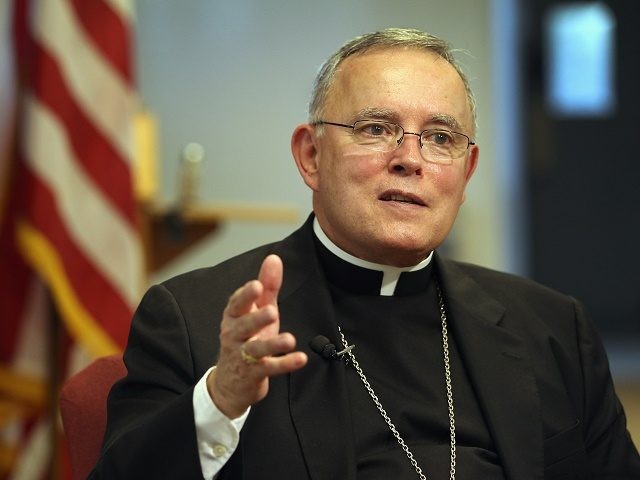Philadelphia Archbishop Charles Chaput told the synod of bishops in Rome Thursday that in the Catholic tradition there is no such thing as an “LGBTQ Catholic,” as if people’s sexual proclivities determine their identity as persons.
“There is no such thing as an ‘LGBTQ Catholic’ or a ‘transgender Catholic’ or a ‘heterosexual Catholic,’ as if our sexual appetites defined who we are,” Chaput said, “as if these designations described discrete communities of differing but equal integrity within the real ecclesial community, the body of Jesus Christ.”
The archbishop was not denying that some Catholics experience attraction to persons of the same sex. He was reacting to a passage of the working document of the synod of bishops, which he found to be unfaithful to the Catholic view of the human person.
“Some LGBT youths, through various contributions that were received by the General Secretariat of the Synod, wish to ‘benefit from greater closeness’ and experience greater care by the Church,” the text states.
In his address, Chaput stressed that Christians do not compartmentalize believers as if sexual attraction were constitutive of a person’s identity.
“This has never been true in the life of the Church, and is not true now,” the archbishop said. “It follows that ‘LGBTQ’ and similar language should not be used in Church documents, because using it suggests that these are real, autonomous groups, and the Church simply doesn’t categorize people that way.”
What the Church holds to be true about human sexuality “is not a stumbling block,” he said. “It is the only real path to joy and wholeness.”
“If we lack the confidence to preach Jesus Christ without hesitation or excuses to every generation, especially to the young, then the Church is just another purveyor of ethical pieties the world doesn’t need,” he said.
Some observers took offense at the archbishop’s words. Jesuit Father James Martin, an outspoken advocate and spokesman for the “LGBT community,” openly disagreed with Chaput’s take on the Catholic tradition.
“Why should we use ‘LGBT’ or ‘LGBTQ’ in the church?” Father Martin asked on Twitter. “Because people have a right to name themselves, and this is the name many choose.”
“And there is such a ‘thing’ as an ‘LGBTQ Catholic’ and a ‘transgender catholic.’ They are members of the Body of Christ,” he said.
Why should we use “LGBT” or “LGBTQ” in the church? Because people have a right to name themselves, and this is the name many choose. And there is such a “thing” as an “LGBTQ Catholic” and a “transgender catholic.” They are members of the Body of Christ. https://t.co/7OWDayKUbk
— James Martin, SJ (@JamesMartinSJ) October 4, 2018
This is not the first time that Father Martin and the Archbishop of Philadelphia have clashed over homosexuality.
After the publication of Father Martin’s 2017 book, Building a Bridge, in which the priest “calls the Church to a spirit of respect, compassion and sensitivity in dealing with persons with same-sex attraction,” Archbishop Chaput chided the priest for failing to summon gay Catholics to “conversion,” rather than simply asking for “affirmation.”
What Father Martin’s book “regrettably lacks,” Chaput wrote, is “an engagement with the substance of what divides faithful Christians from those who see no sin in active same-sex relationships.”
The Church is not simply about unity, Chaput said, but about unity in God’s love rooted in truth. This means that active homosexuals (or anyone in an illicit sexual relationship) “need conversion, not merely affirmation.”
Chaput’s critique mirrored other reviews of Father Martin’s book that pointed out the conspicuous absence of any clear statement of Christian sexual ethics as if he were embarrassed by it or simply disagrees with what his own Church teaches about homosexuality.
According to the estimations of one Jesuit, some 50 percent of American Jesuits are homosexual.
“Roughly half of the Society under the age of fifty shuffles on the borderline between declared and undeclared gayness,” wrote Father Paul Shaughnessy, S.J., in a 2002 essay in the Weekly Standard.
The article bore the provocative title, “Are the Jesuits Catholic?”
Follow Thomas D. Williams on Twitter Follow @tdwilliamsrome.

COMMENTS
Please let us know if you're having issues with commenting.